”When we are born, we cry that we
are come to this great stage of fools“
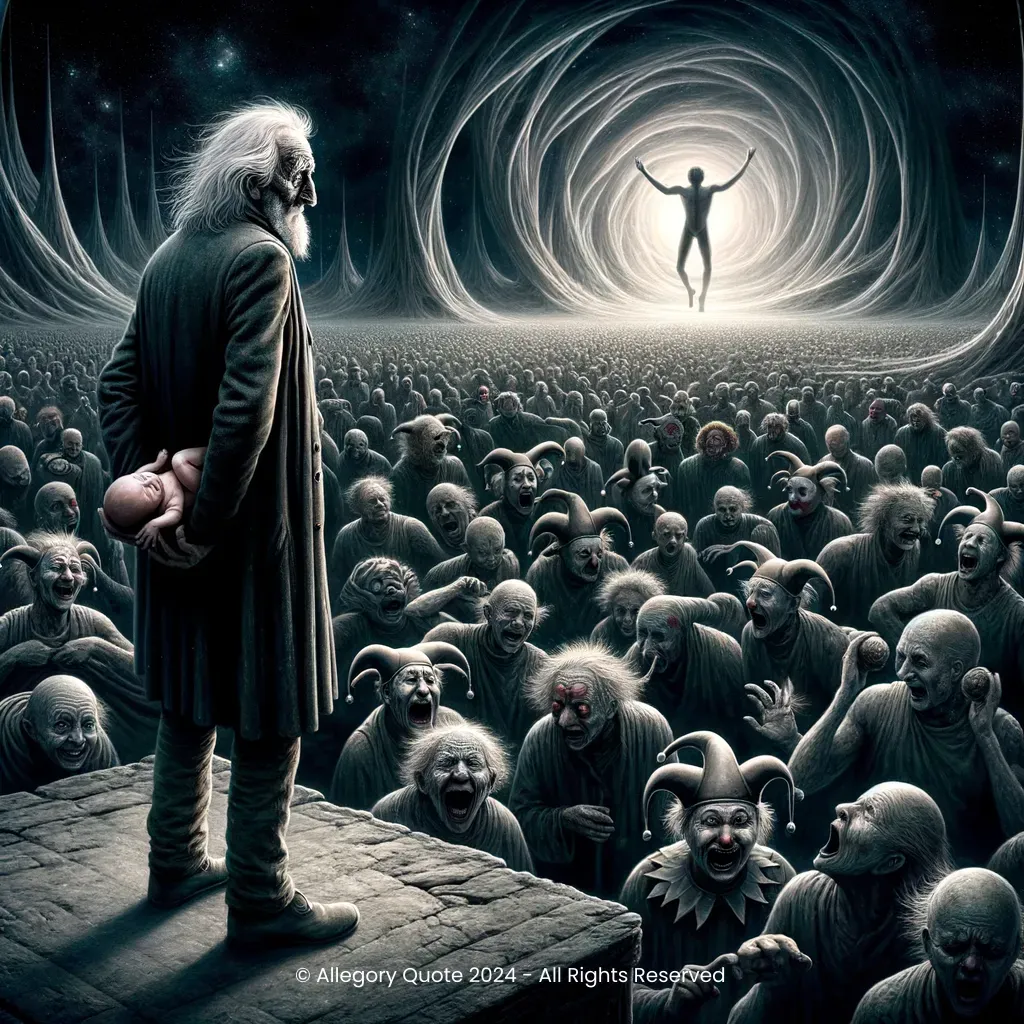
0
0
0
0
- Meaning
- In this line, King Lear laments the human condition after experiencing betrayal and madness. The phrase suggests that from the moment of birth, humans are introduced into a world filled with foolishness and irrationality. It reflects Lear's profound disillusionment with life and the behavior of those around him. The phrase has a pessimistic tone, signifying Lear's recognition of the inherent absurdity and folly that characterizes human existence.
- Allegory
- This image would feature an elderly king, representing King Lear, to emphasize the weight of experience and disillusionment. The chaotic stage with clown-like figures symbolizes the folly and irrationality of human actions. The crying infant in Lear's arms signifies the entry of new life into a preexisting world of chaos. The contrasting background light gently suggests that despite the rampant folly, there always exists a glimmer of hope or enlightenment. This image artistically captures the essence of Shakespeare's exploration of human nature and the coexistence of absurdity and potential wisdom.
- Applicability
- This phrase can help individuals reflect on their own lives and the irrational nature of human behavior. It serves as a reminder to stay humble and aware of our own limitations and follies. It can promote empathy and understanding towards others, recognizing that everyone is flawed and capable of mistakes. Additionally, this perspective can encourage an individual to navigate life with a sense of humor and patience towards the absurdities of the human condition.
- Impact
- This phrase has had a significant impact on literature and culture. It is frequently cited in discussions about existentialism and human folly. Its pessimistic view of life has been echoed in various philosophical and literary works, cementing its place as a profound reflection on the human condition. The phrase captures the tragicomic aspect of life that many people can relate to, making it a timeless insight into human nature.
- Historical Context
- "King Lear" was first performed in 1606, during the Jacobean era of England. This period was marked by political uncertainty and social change, which Shakespeare often explored in his works. The historical context of this phrase includes the tension between the monarchy and emerging modern ideas of individualism and rationality. Lear's descent into madness and his realization of humanity's intrinsic folly mirror the tumult and upheaval of that time.
- Criticisms
- One criticism of this phrase could be its overly cynical perspective on life. Some might argue that it dismisses the positive aspects of human experience, such as love, growth, and wisdom. It's been debated whether such a nihilistic view is productive or whether it undermines the potential for good and meaningful actions within humanity.
- Variations
- There are variations and interpretations of this quote across cultures. For instance, many Eastern philosophies like Buddhism and Taoism also reflect on the concept of human folly and the illusionary nature of life, though they often offer more meditative and serene approaches, rather than Lear's despair.
-

The empty vessel makes the loudest sound.
-

If you can look into the seeds of time, and say which grain will grow and which will not, speak then to me.
-
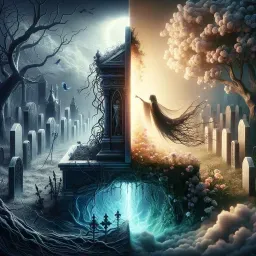
The evil that men do lives after them; the good is oft interred with their bones.
-

I am one who loved not wisely but too well.
-
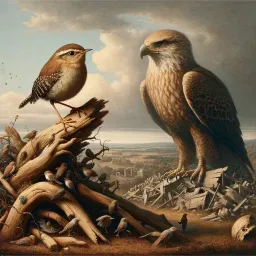
The world is grown so bad, that wrens make prey where eagles dare not perch.
-

I will wear my heart upon my sleeve for daws to peck at.
-
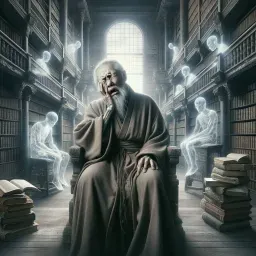
There was never yet philosopher that could endure the toothache patiently.
-
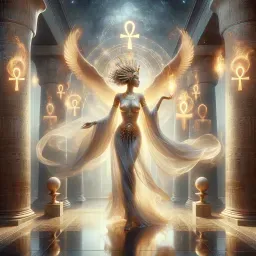
Give me my robe, put on my crown; I have immortal longings in me.
No Comments